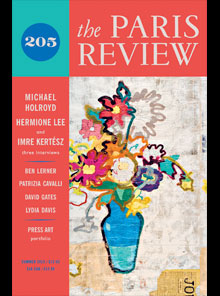Jewish Literary Links for Shabbat

Shabbat shalom.

Shabbat shalom.
 Some of my (ever-evolving) ruminations on how to define what makes a book “Jewish” stem from my own writing, especially my short-story collection, Quiet Americans, which is inspired largely by the experiences of my paternal grandparents, German Jews who immigrated to the United States in the late 1930s. But I’ve also considered the subject more broadly (for some examples, please see “further reading” links at the end of this post).
Some of my (ever-evolving) ruminations on how to define what makes a book “Jewish” stem from my own writing, especially my short-story collection, Quiet Americans, which is inspired largely by the experiences of my paternal grandparents, German Jews who immigrated to the United States in the late 1930s. But I’ve also considered the subject more broadly (for some examples, please see “further reading” links at the end of this post).
Helping me shape my thoughts along the way: a website I discovered thanks to one of the innumerable “Jewish newsletters” I subscribe to. At The 5 Legged Table, educator Avraham Infeld’s teachings frame a discussion of the question: What is being Jewish all about? The underlying principles impress me as applicable to a related question: What is a Jewish book all about?
Briefly, the 5 Legged Table comprises the following elements: (more…)
1. I am unabashedly stealing the structure of this post from Daniel Nester, who is currently posting “99 Days of Notes” on his site. All last week, I was especially moved by the several Notes on Grief. You can find links to each post in the series and read all about the project right here.
2. I’m hoping that this format will help me say something at least semi-cogent regarding Margo Rabb’s essay, “Fallen Idols,” which appeared in last Sunday’s New York Times Book Review.
2a. Rabb’s essay evoked many thoughts, only some of which I’ll attempt to articulate here.
2b. I’ve never met or corresponded with Margo Rabb, but I admire and have often recommended her short story “How to Tell a Story.”
3. “Fallen Idols” essentially presents us with exemplary instances of disillusionment resulting from discoveries that esteemed authors have flaws.
3a. The essay begins with Rabb’s own admiration for Rainer Maria Rilke; having Googled him, Rabb discovers enough to make her wonder, “How could the kind prophet whose lengthy passages I’d copied into my teenage diary be a selfish, sycophantic, womanizing rat?” (more…)
Monday brings the weekly batch of no-fee competitions/contests, paying submission calls, and jobs for those of us who write (especially those of us who write fiction, poetry, and creative nonfiction).
 Oh, what a creature of habit I am. I try to adhere to a nice, structured blogging schedule, and weekend Practicing Writing posts aren’t part of it.
Oh, what a creature of habit I am. I try to adhere to a nice, structured blogging schedule, and weekend Practicing Writing posts aren’t part of it.
But today I have to break with routine and participate in David Abrams’s “Sunday Sentence” project, which asks others to share the best sentence(s) we’ve read during the past week, “out of context and without commentary.” So, without further ado:
“I breathed in the night air that was or was not laced with anachronistic blossoms and felt the small thrill I always felt to a lesser or greater degree when I looked at Manhattan’s skyline and the innumerable illuminated windows and the liquid sapphire and ruby of traffic on the FDR Drive and the present absence of the towers.”
–from “False Spring” by Ben Lerner, in The Paris Review (Summer 2013)